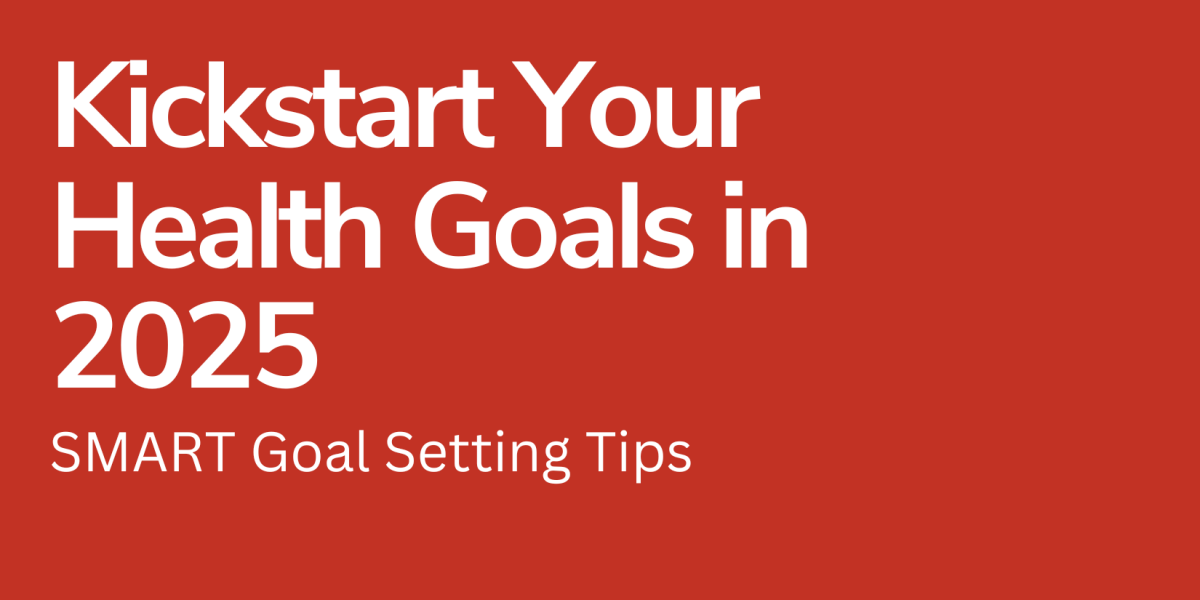The start of a new year often feels like the perfect time to refocus on health and well-being. Whether your goal is to eat healthier, get more active, or improve your sleep, the new year offers a natural sense of a “clean slate” and motivation. But how do you set goals that stick? The Marathon Family Health Team (MFHT) has strategies to help you achieve lasting success.
The Fresh Start Effect
January isn’t the only time to start fresh. The “fresh start effect” can occur any time you feel like you’re turning a new page – on a Monday, the first of the month, the start of a new season, or even when beginning a new job. These moments boost motivation and create great opportunities to kickstart healthy habits.
Why Setting Health Goals Matters for Your Health
Setting health goals, even small ones, can lead to lasting improvements in your well-being. Simple changes, like eating more fruits and vegetables, getting more exercise, or improving your sleep, can have significant benefits. For example, physical activity can reduce the risk of heart disease and lower blood pressure, while improving sleep can boost energy and cognitive function. Healthy eating can strengthen the immune system and reduce the risk of chronic diseases. By setting achievable goals, you build a foundation for long-term health improvements.
How to Set SMART Goals
Setting a goal is one thing, but making it a SMART goal increases your chances of success. Here’s how to create your own SMART goal:
- Specific: Be clear about what you want to achieve. Instead of saying, “I want to eat healthier,” specify the exact behavior, such as “I want to include vegetables in my meals.”
- Measurable: Add a way to track your progress. For example, “I will include at least one serving of vegetables in my lunch and dinner.”
- Achievable: Set a goal that feels challenging but doable. Consider your current habits and resources.
- Relevant: Make sure the goal aligns with your values and what’s important to you. Ask yourself, “Why is this goal meaningful to me?”
- Time-Bound: Give yourself a deadline or timeframe. For example, “I will include at least one serving of vegetables in my lunch and dinner every day for the next four weeks.”
Examples of SMART Goals:
- Healthy Eating: “I will include at least one serving of vegetables in my lunch and dinner every day for the next four weeks.”
- Exercise: “I will take a 20-minute walk after dinner on Mondays, Wednesdays, and Fridays for the next four weeks. I will track my progress using a fitness app.”
- Sleep Improvement: “I will go to bed by 10:30 pm every night for the next three weeks to improve my sleep quality.”
- Stress Management: “I will practice 10 minutes of deep breathing or meditation every morning for the next month to help manage stress.”
Tips for Sticking to Your Goals
- Pick goals that matter to you: Focus on what’s meaningful and important in your life.
- Reflect on the past: Think about what worked or didn’t work before and use those insights to guide your next steps.
- Write it down: Keep your goal somewhere visible (e.g., on your fridge, in a journal, or as a phone reminder).
- Ask for support: Share your goals with someone you trust or reach out to health professionals.
- Be kind to yourself: Setbacks happen. Treat them as learning opportunities and adjust your plan as needed.
Taking Action Toward Your Health Goals
Setting SMART goals can help you make positive changes in your health. Whether it’s improving fitness, eating better, or managing stress, achievable goals can lead to lasting habits.
Remember, balance is important – goal setting doesn’t always mean pushing harder. Sometimes, the best goal is to slow down and focus on rest or simply maintaining where you are. If you’re not ready to set big goals, that’s okay. Health is about listening to your body and meeting yourself where you’re at.
Every step counts. Let’s make 2025 a year of health in a way that works for YOU!
Need Help Getting Started?
MFHT can help you as you work towards setting your health goals and achieving them. Whether you’re looking to eat better, get more active, quit smoking or vaping, or manage stress, our team of healthcare professionals is here to support you.
For more information, contact us by emailing appointments@mfht.org or calling 807-229-3243.



